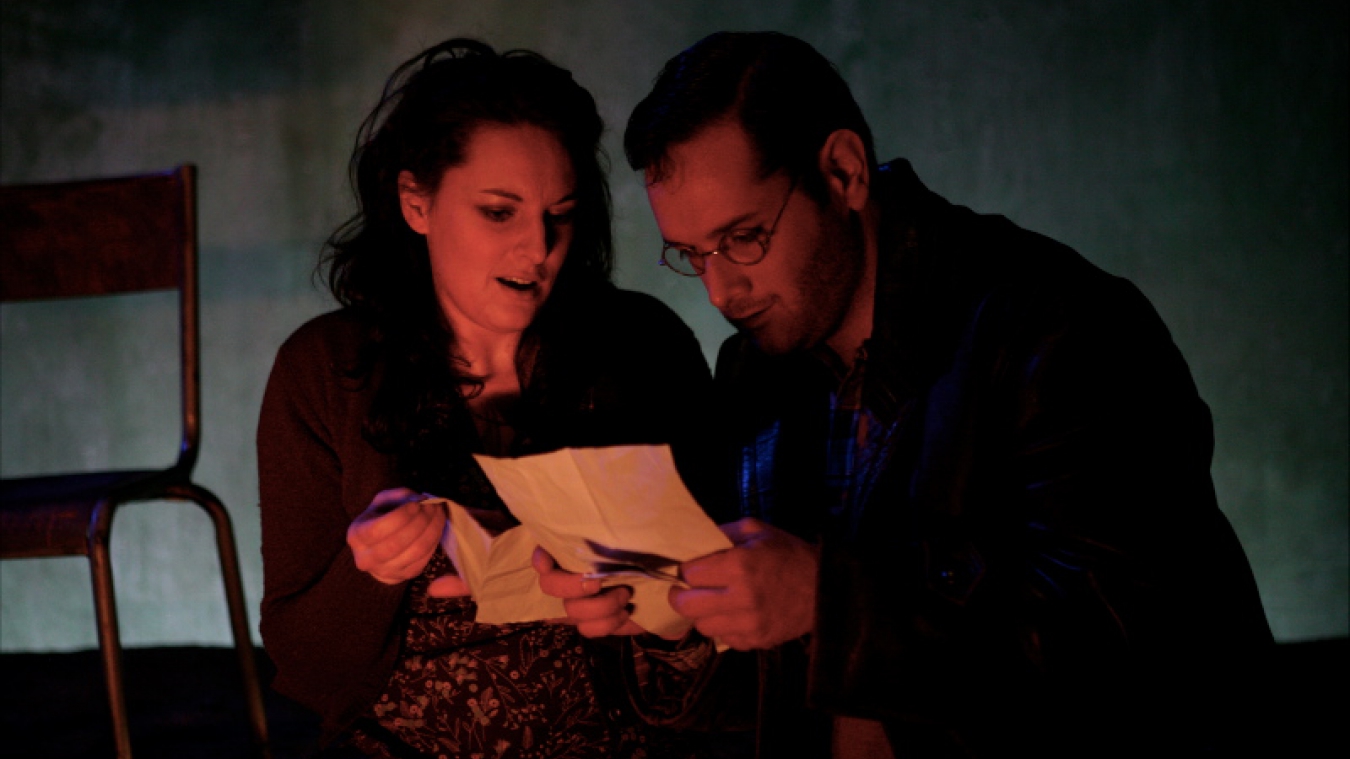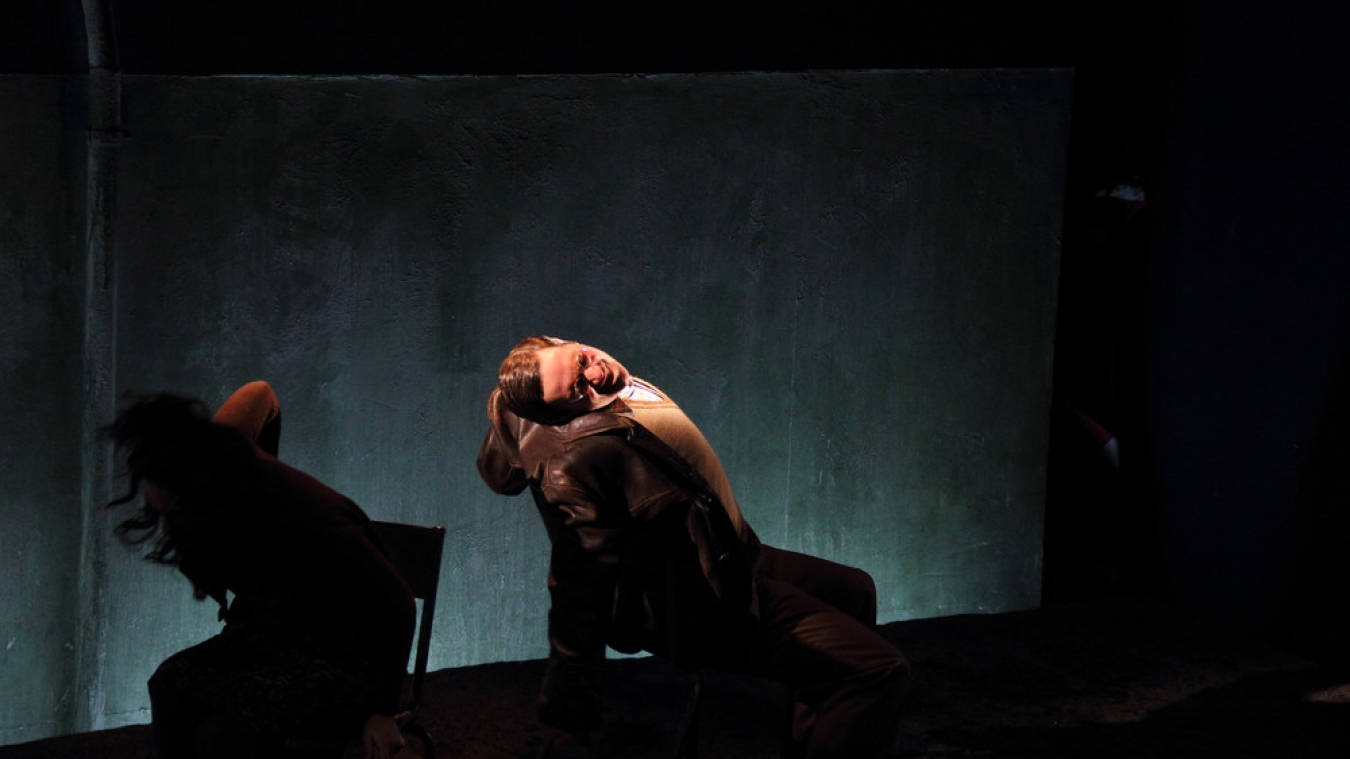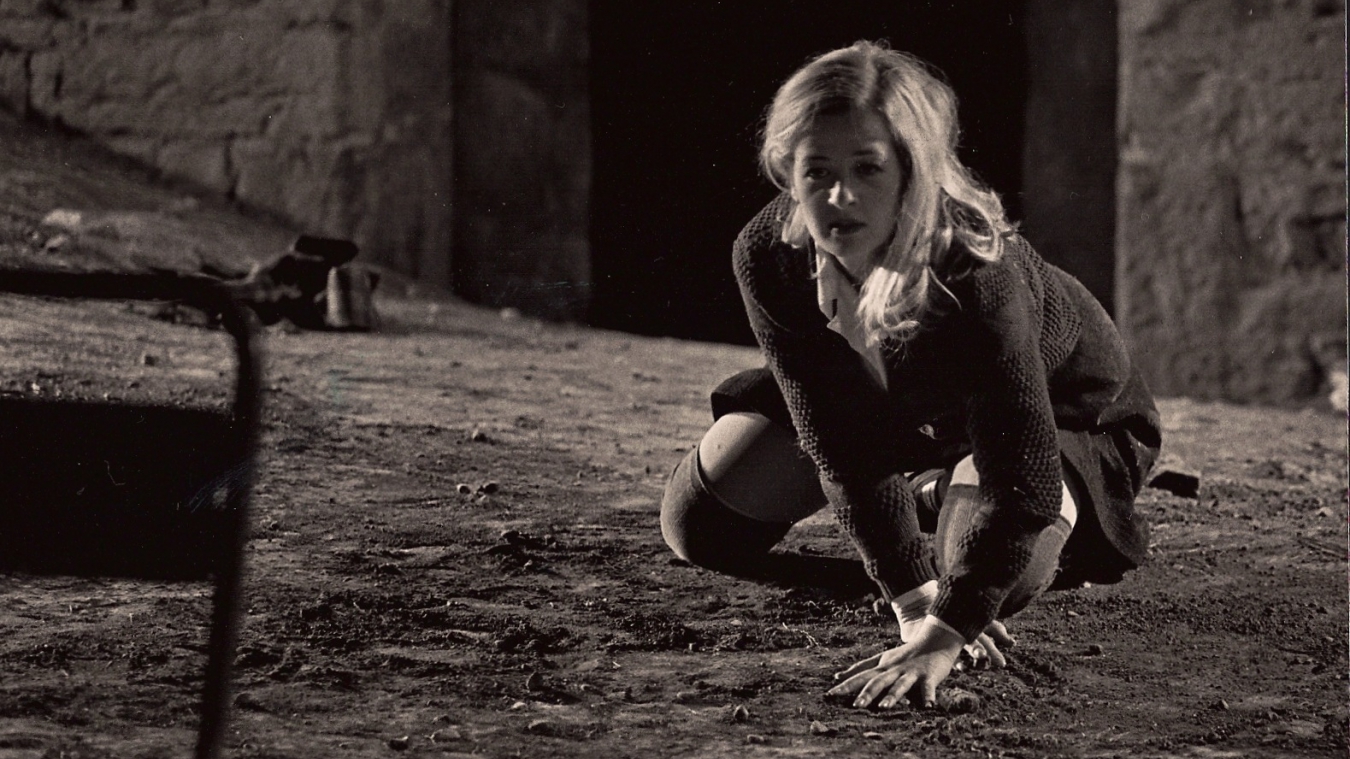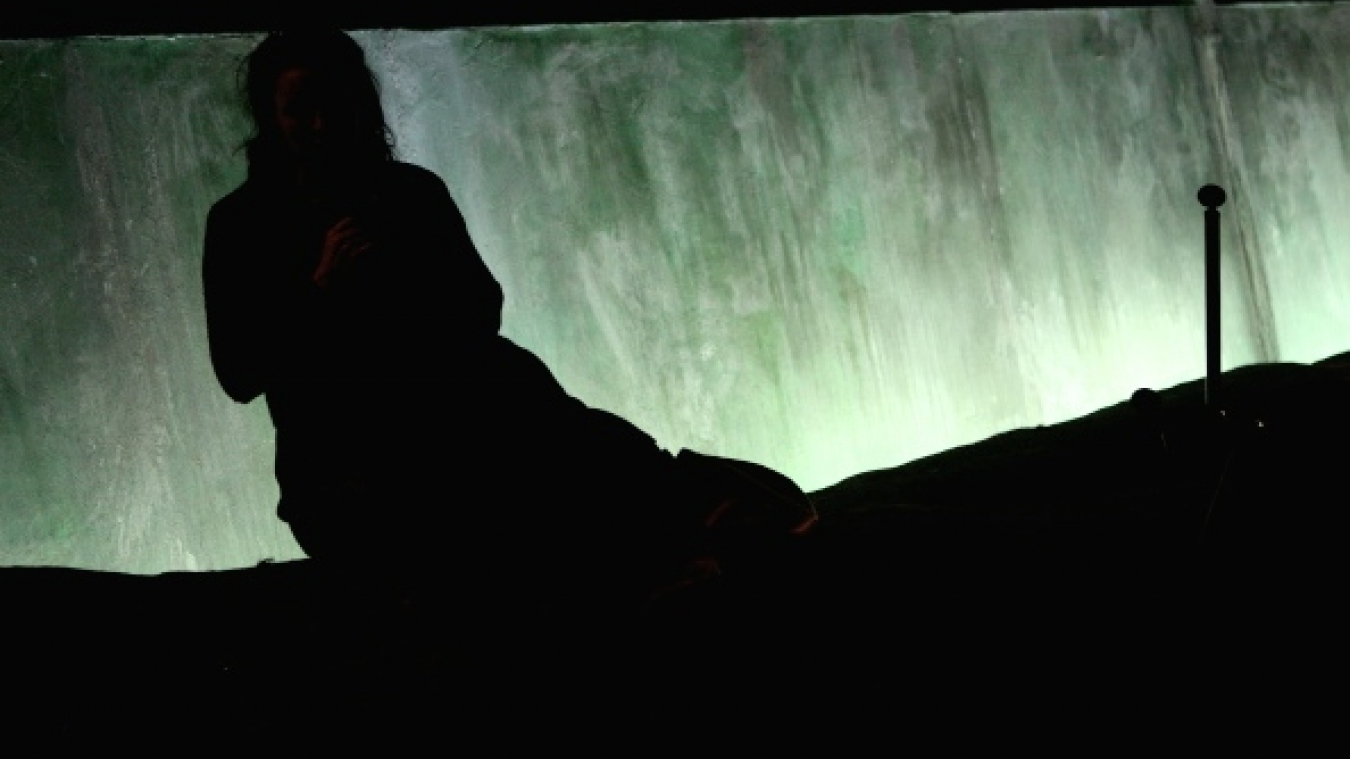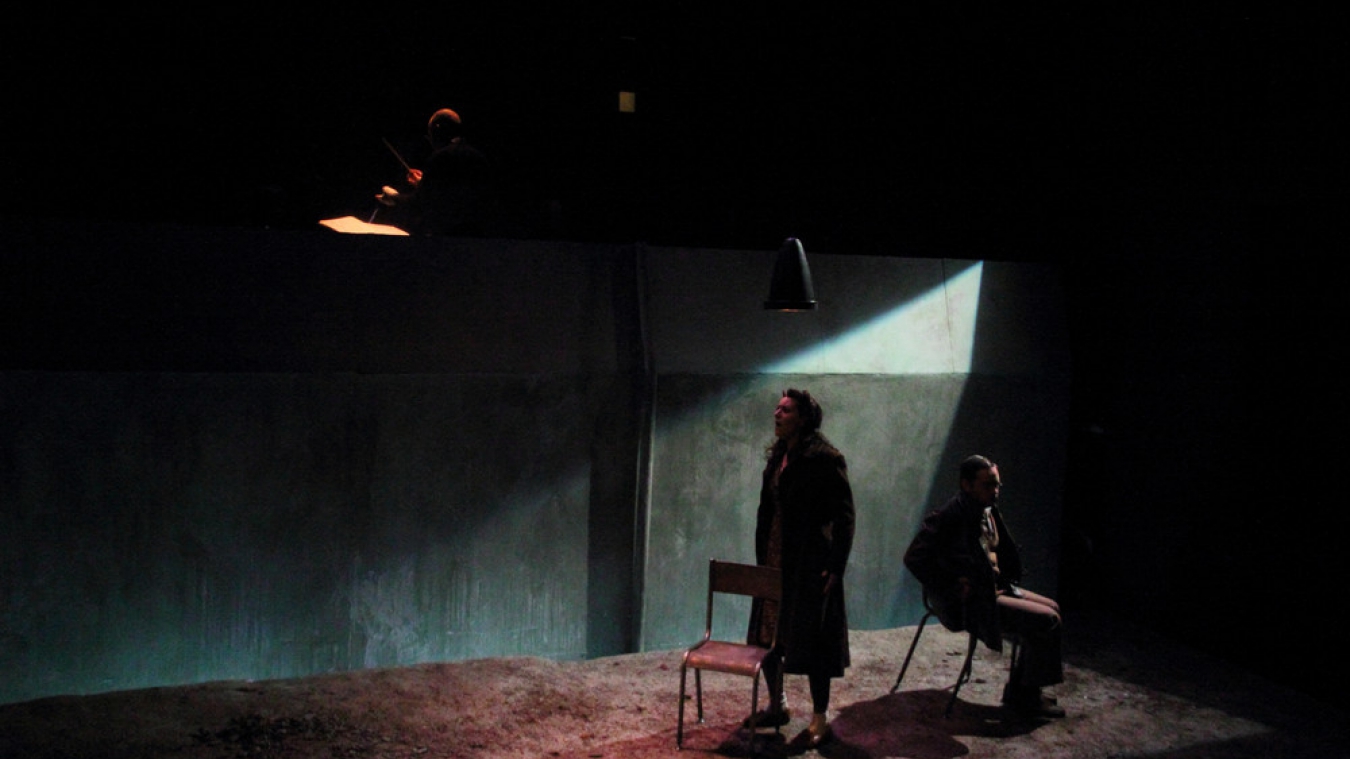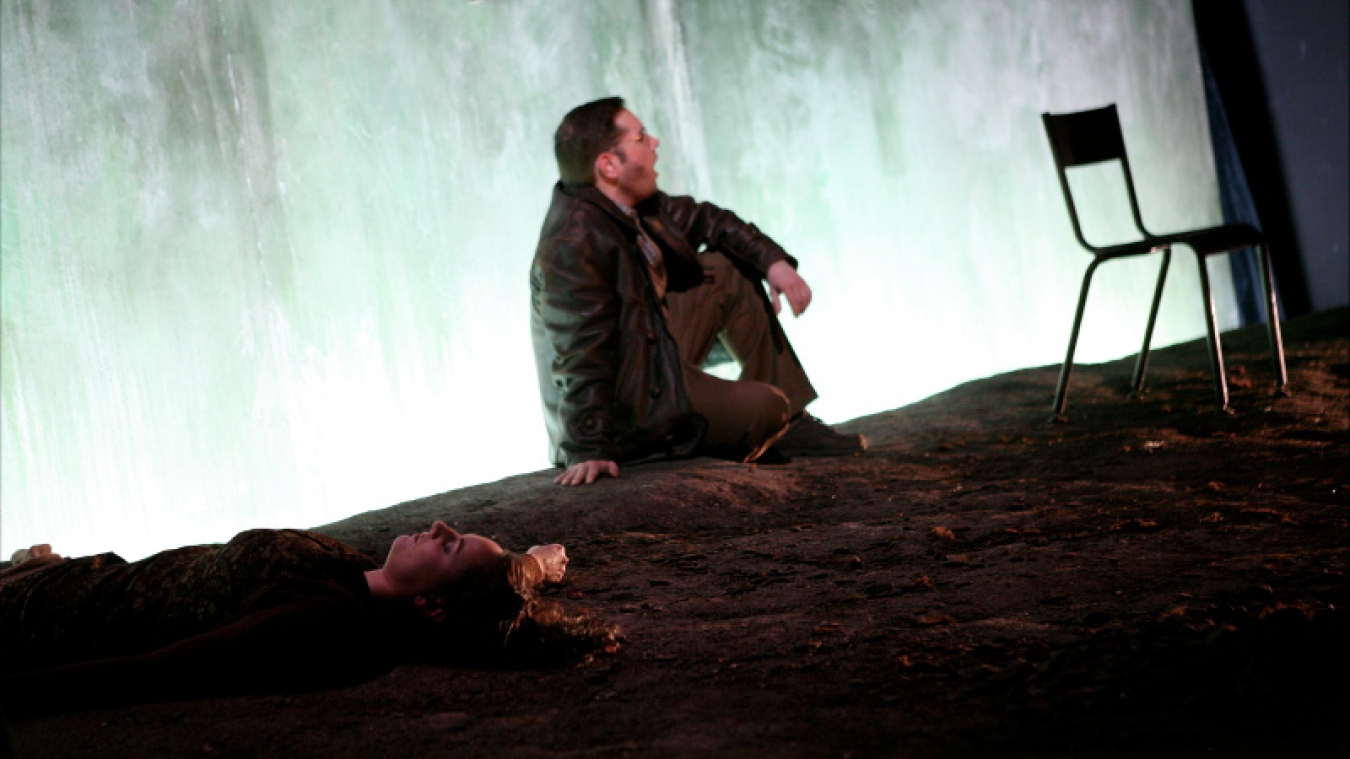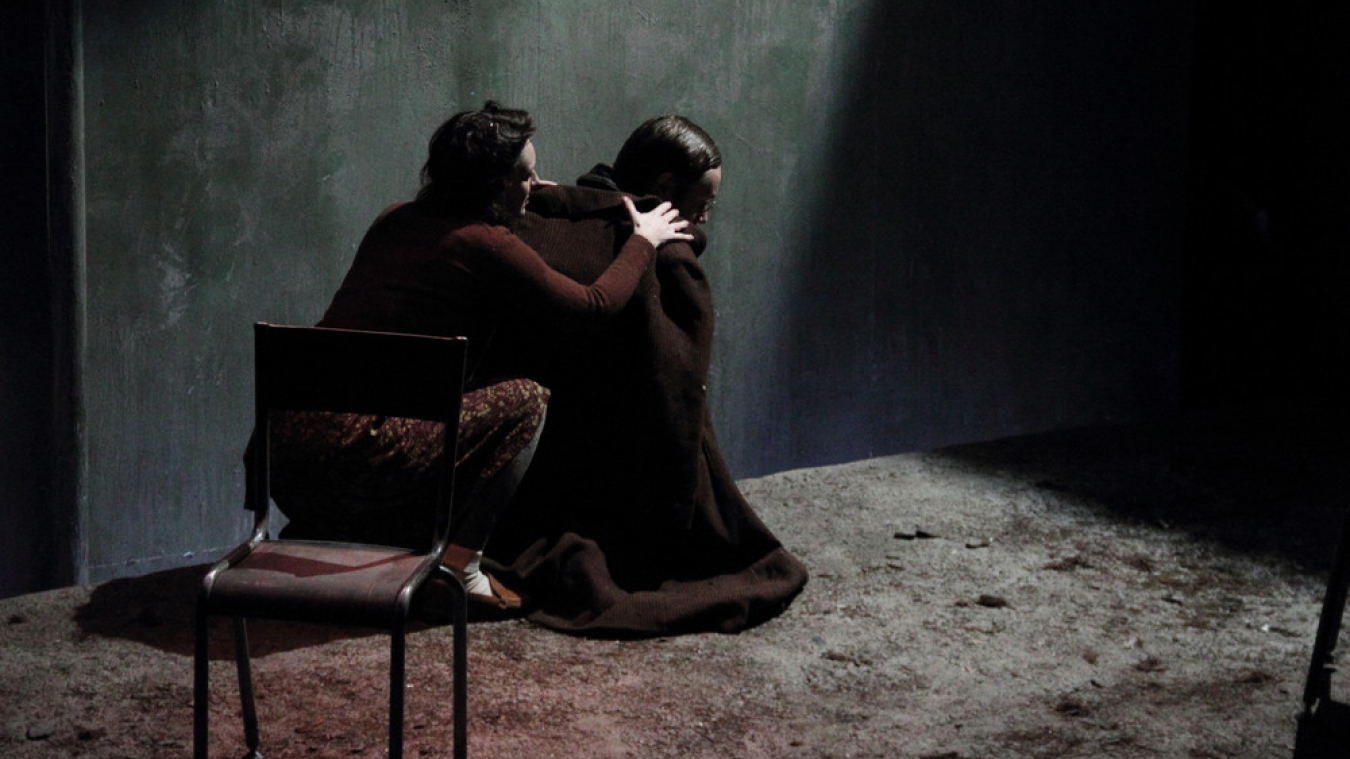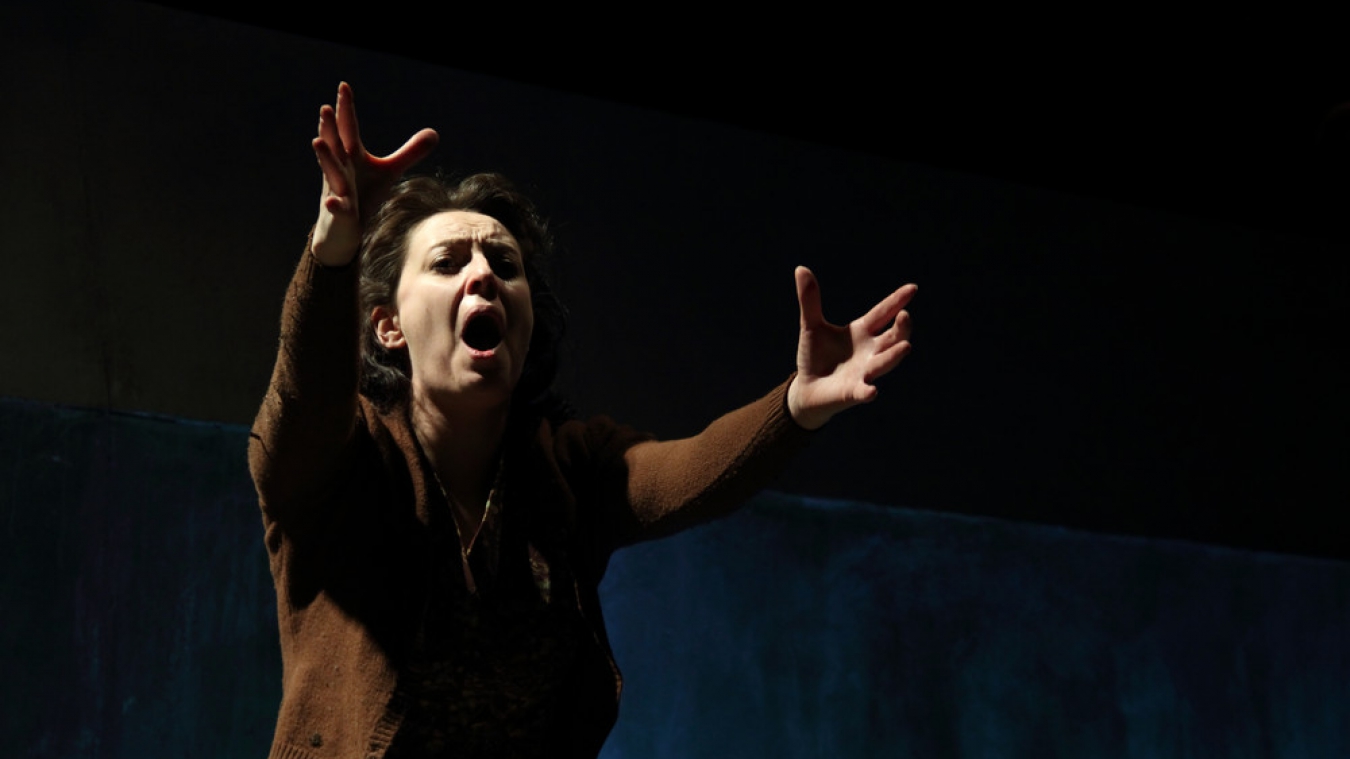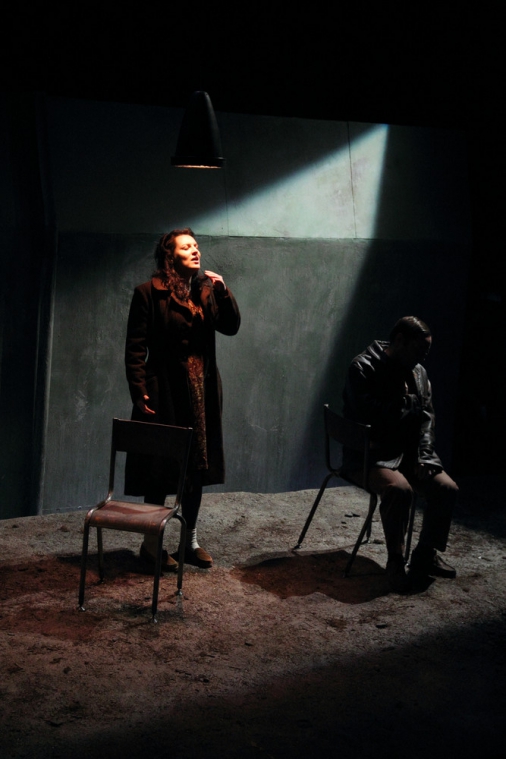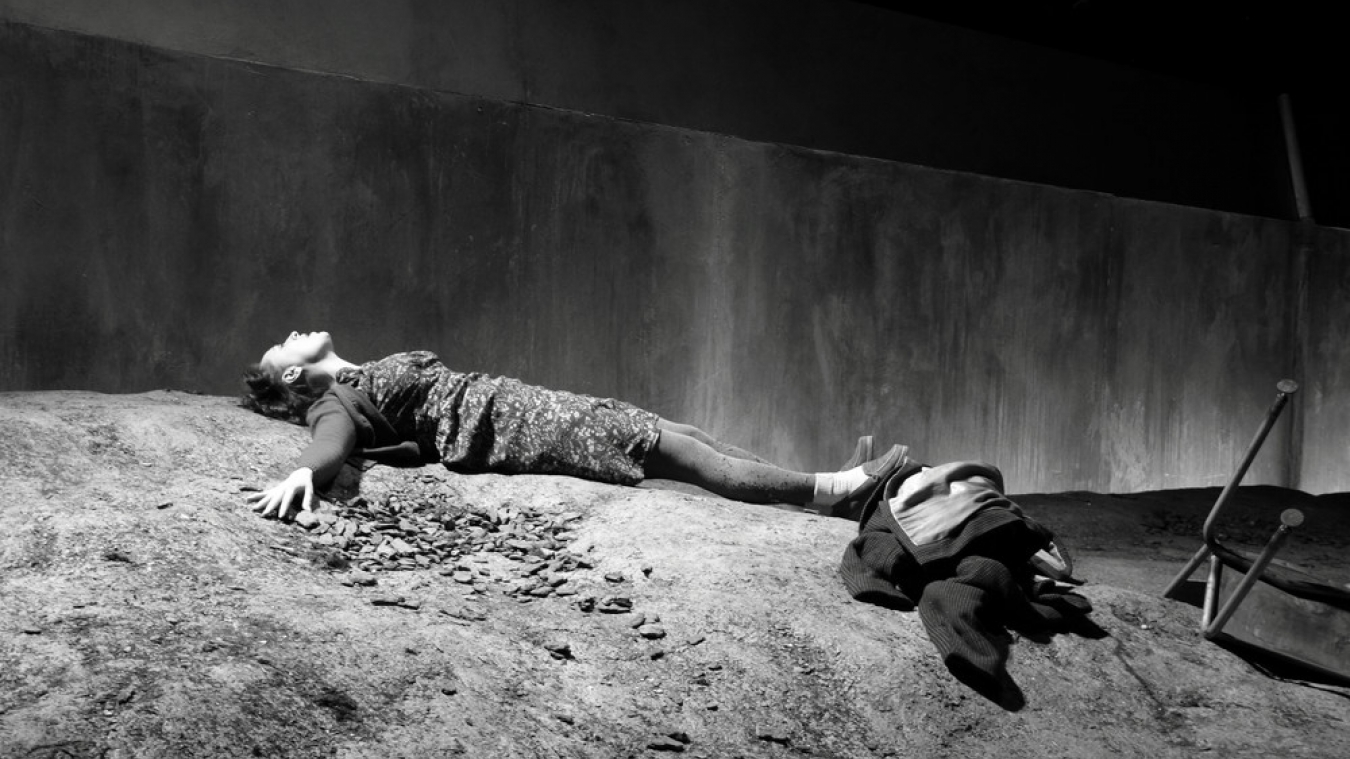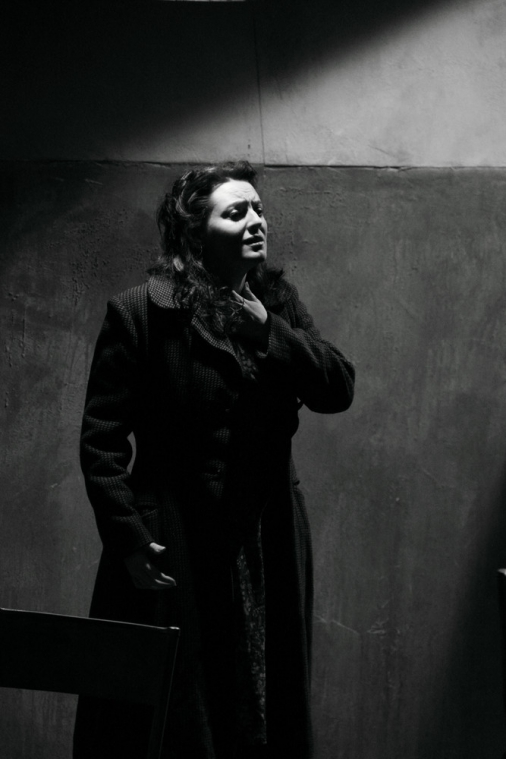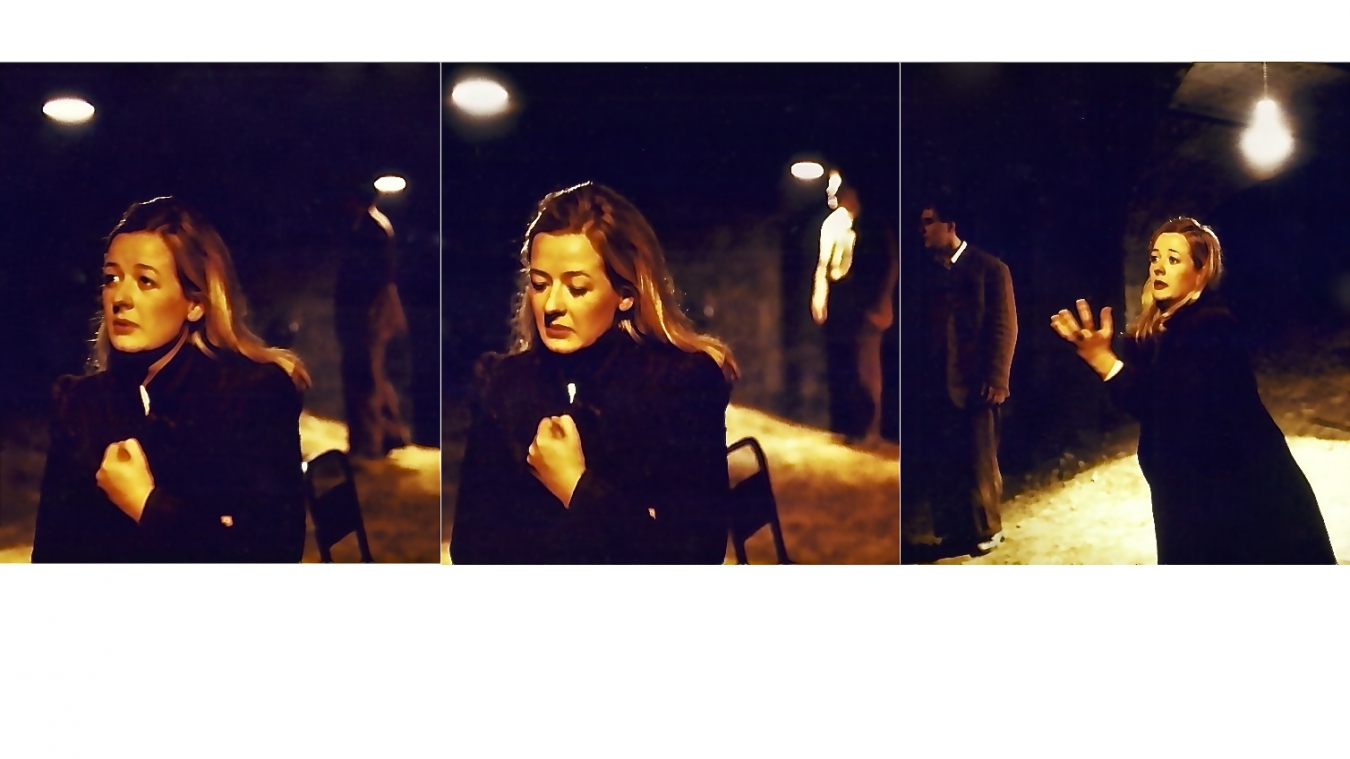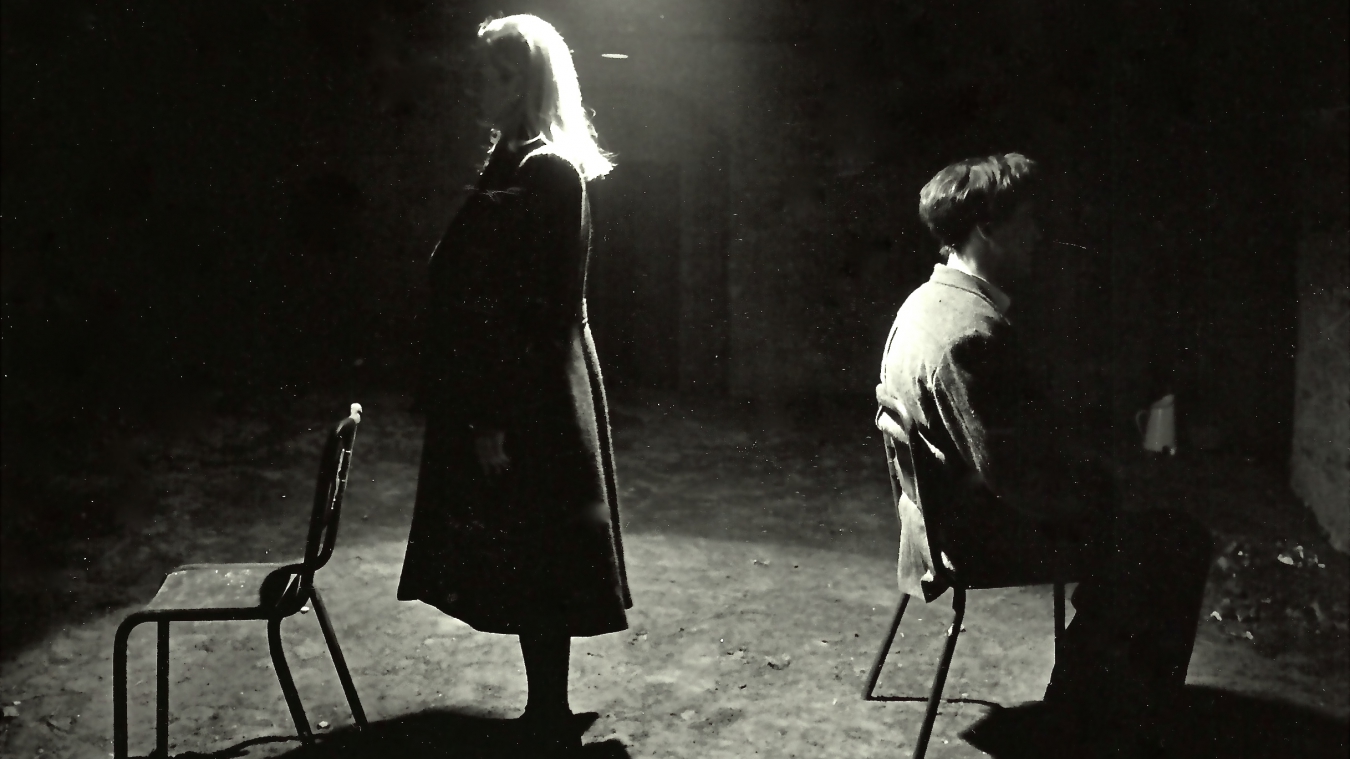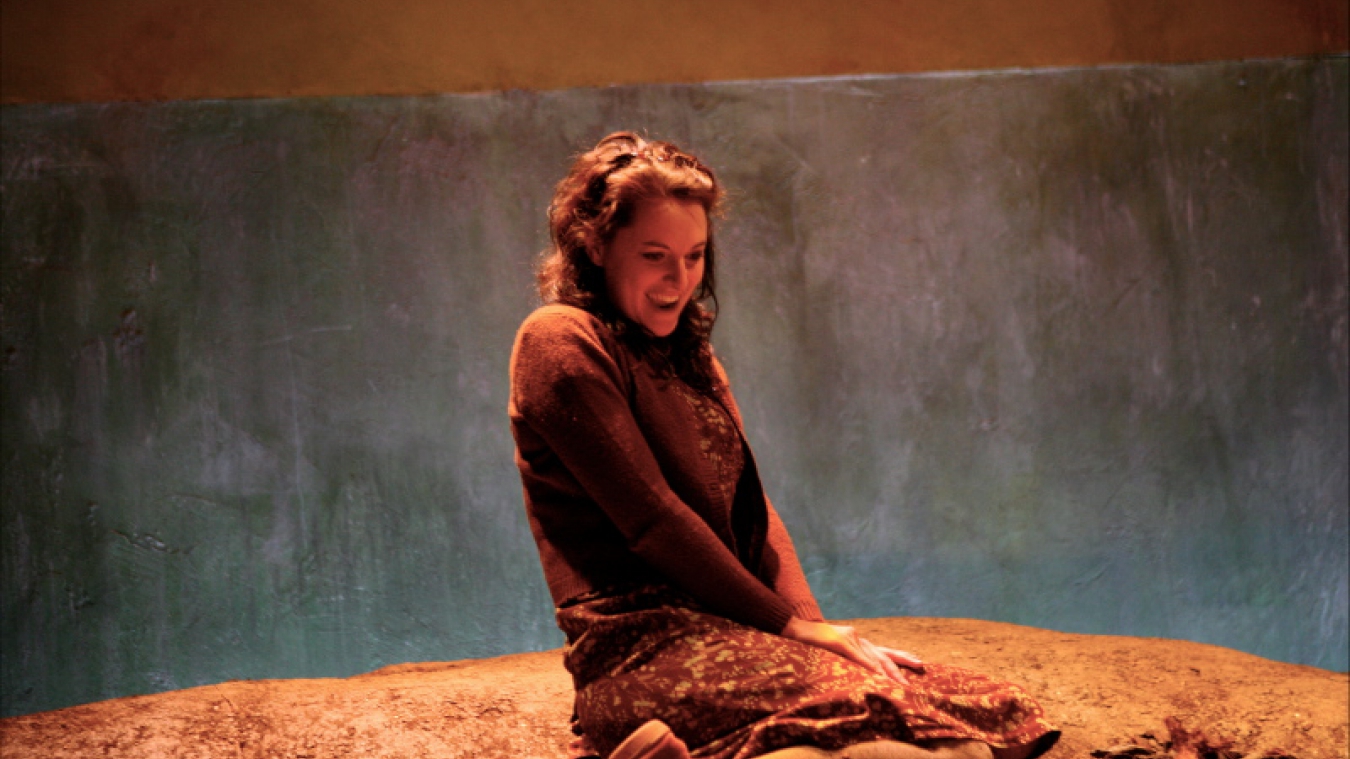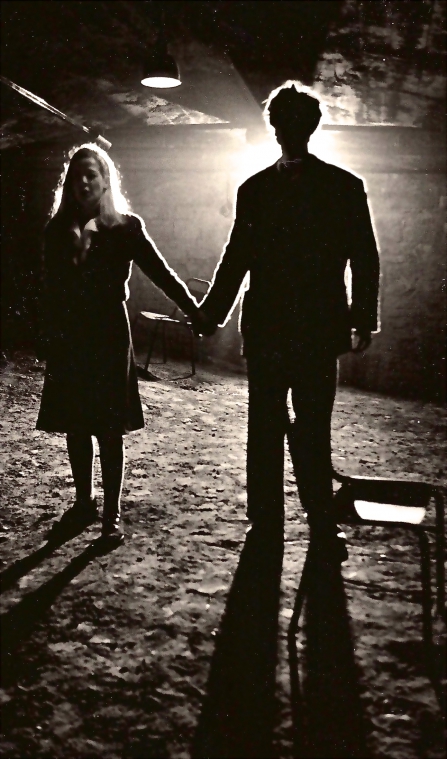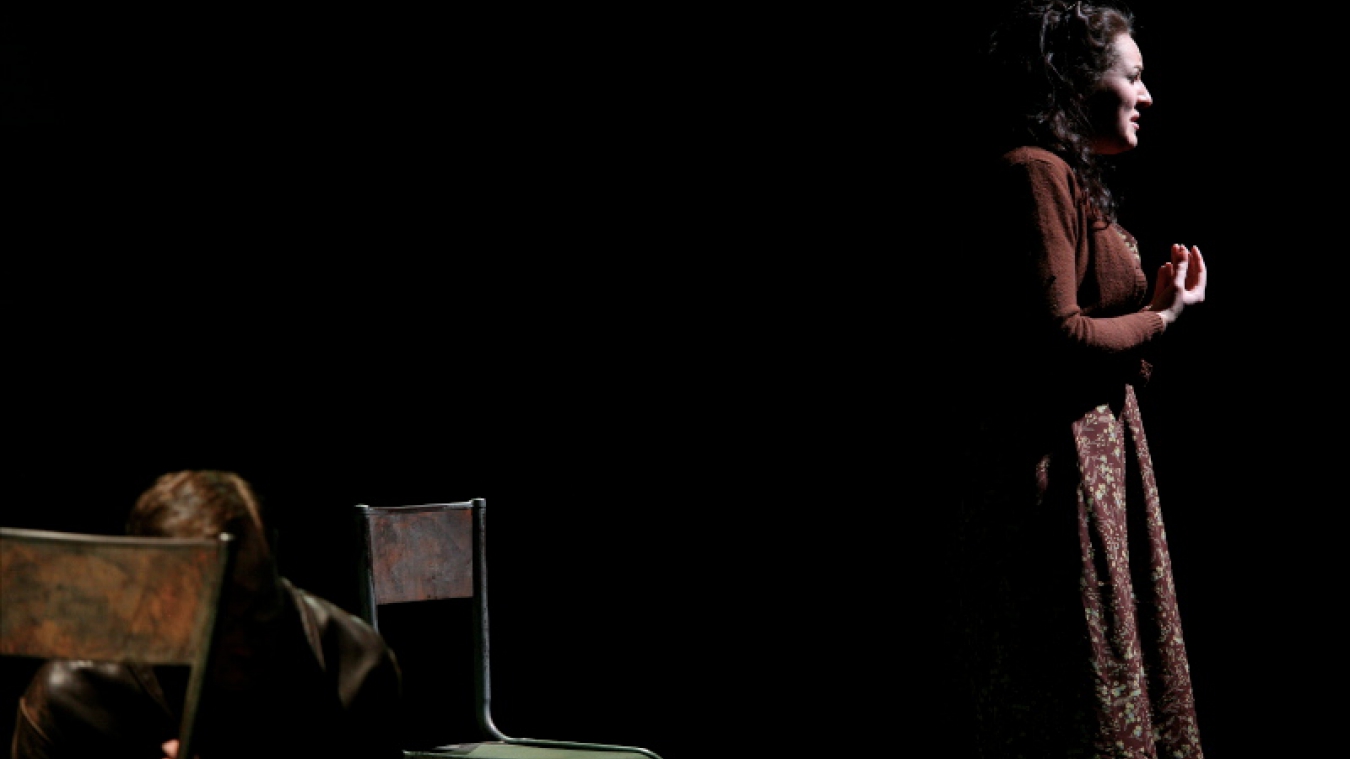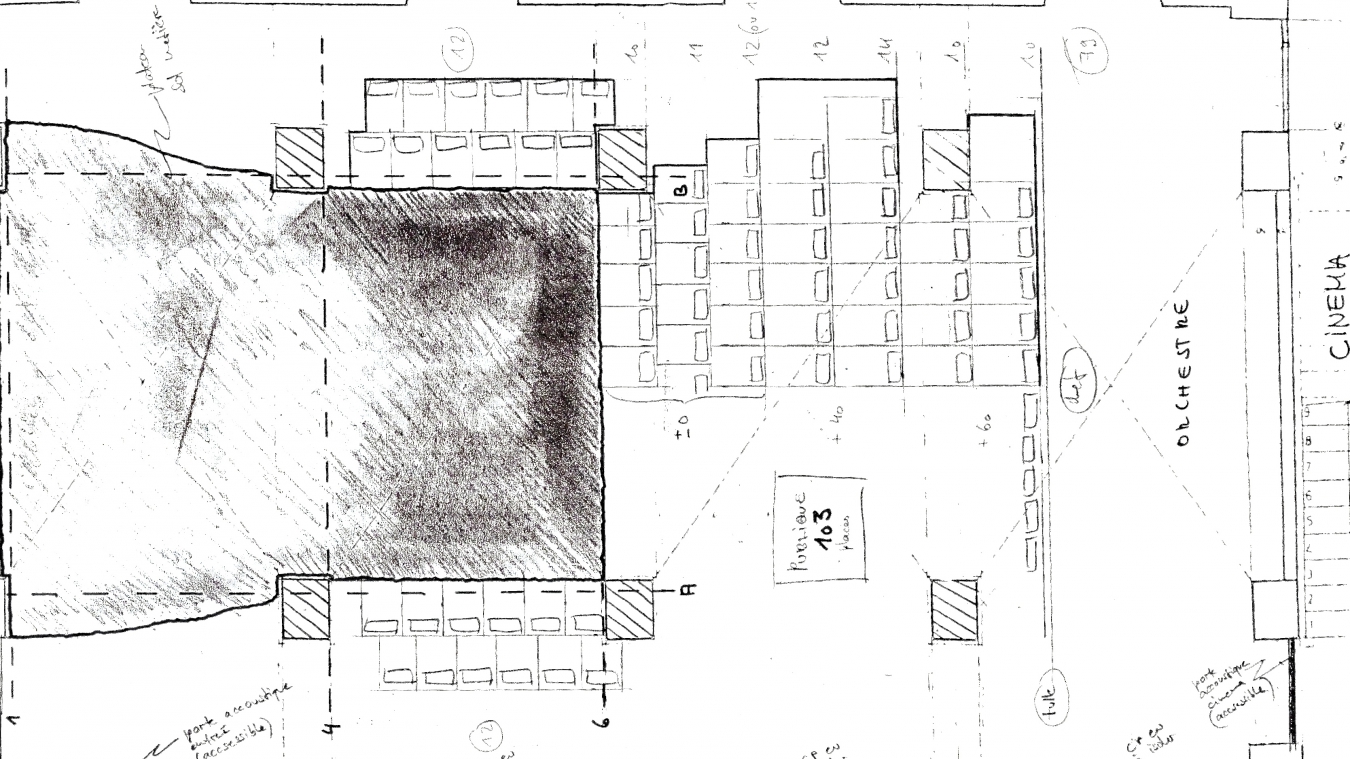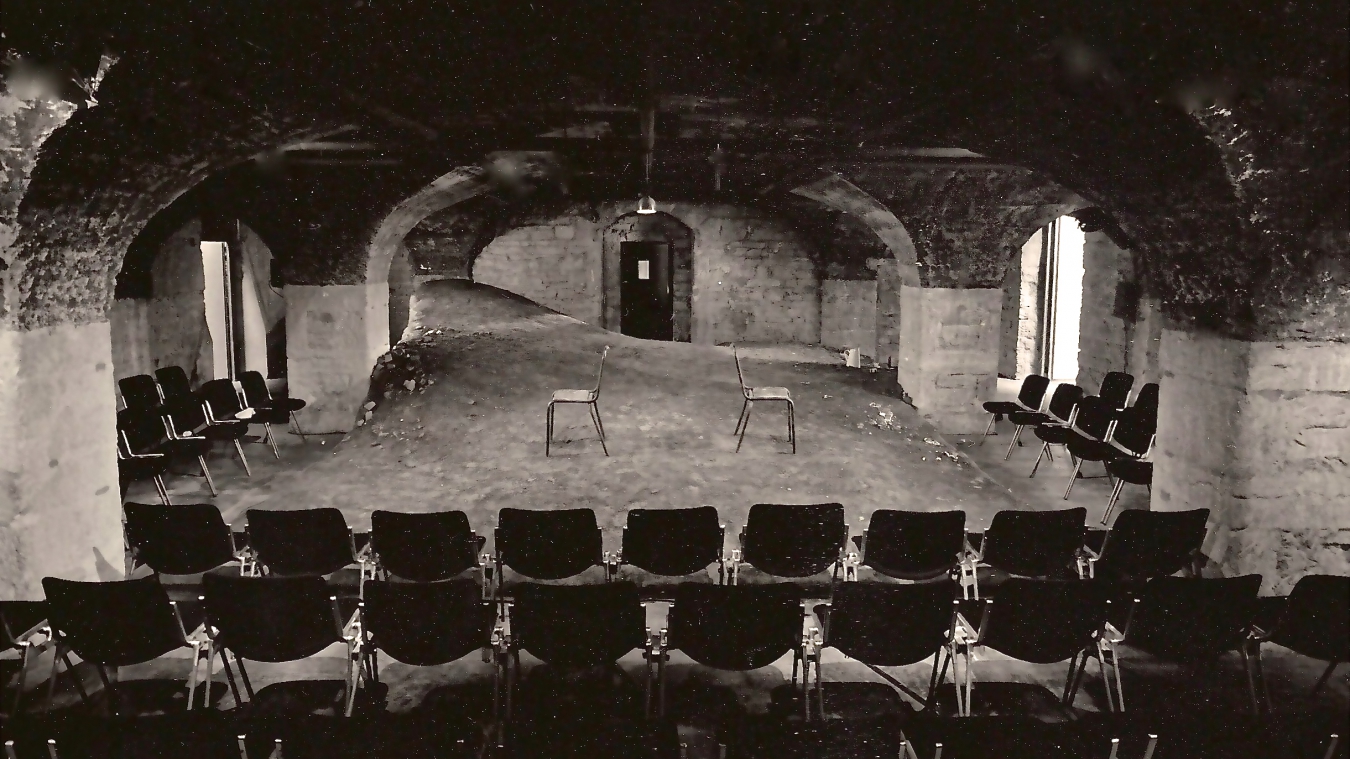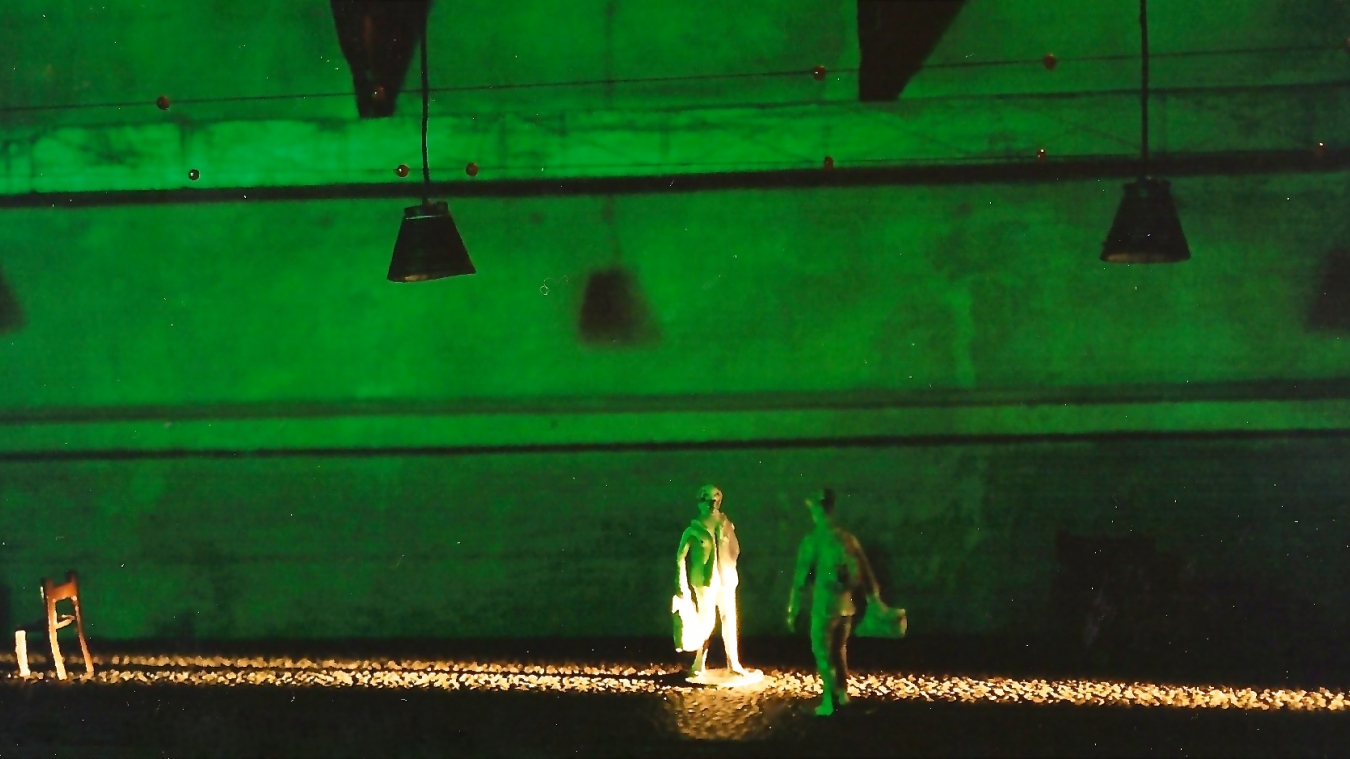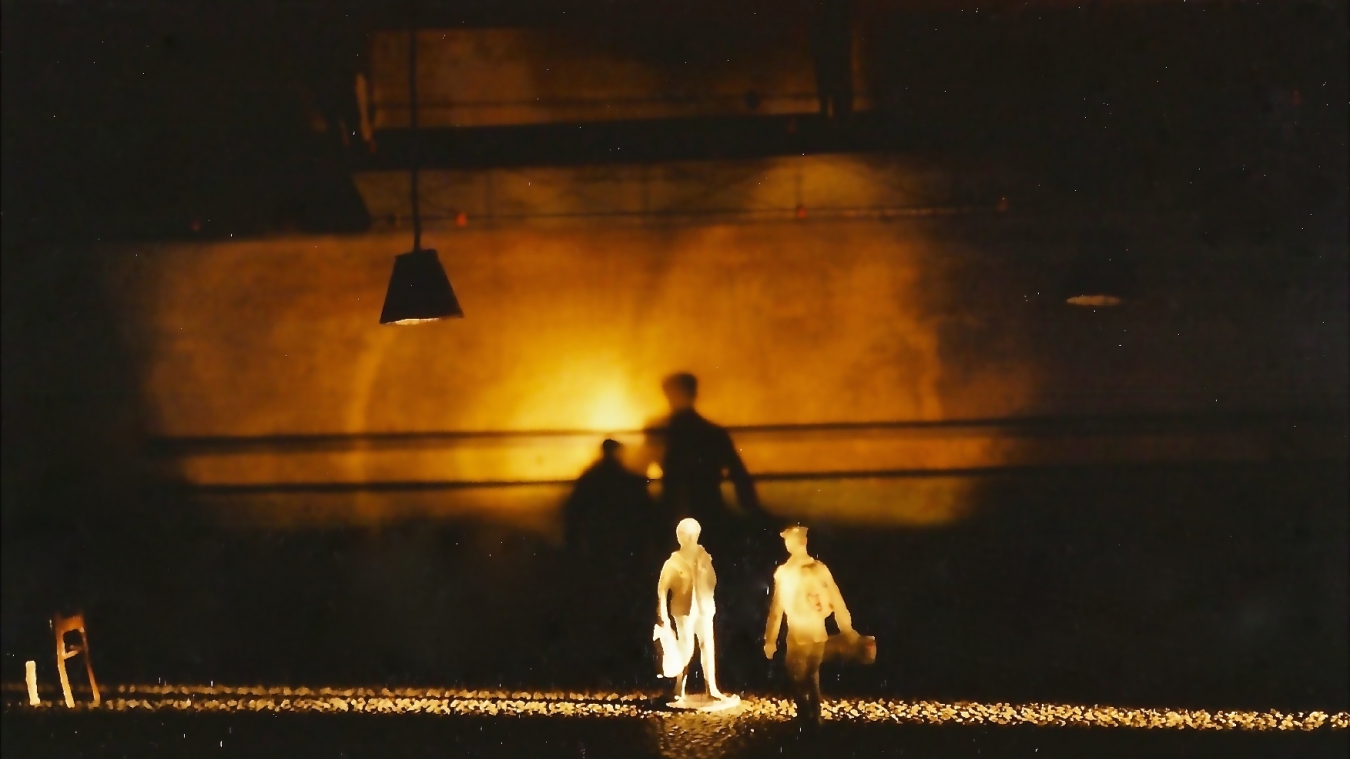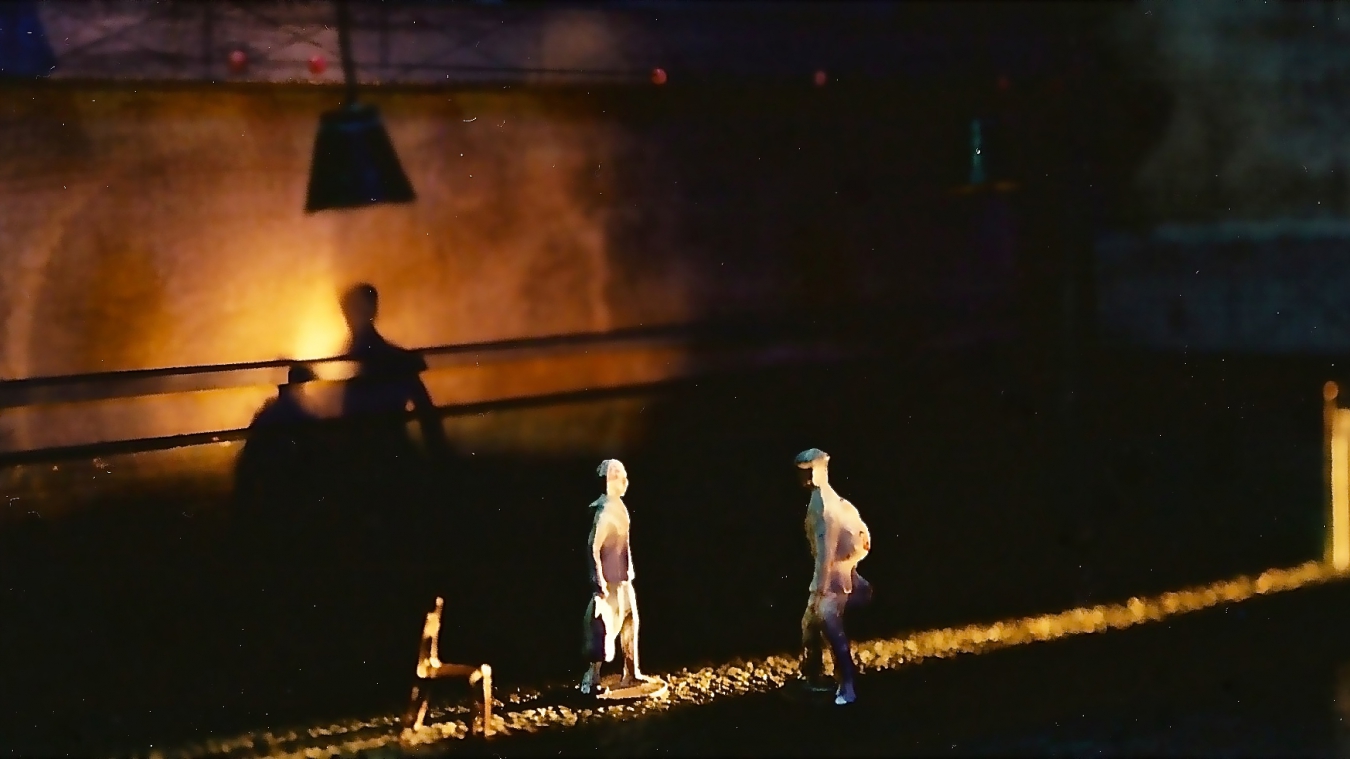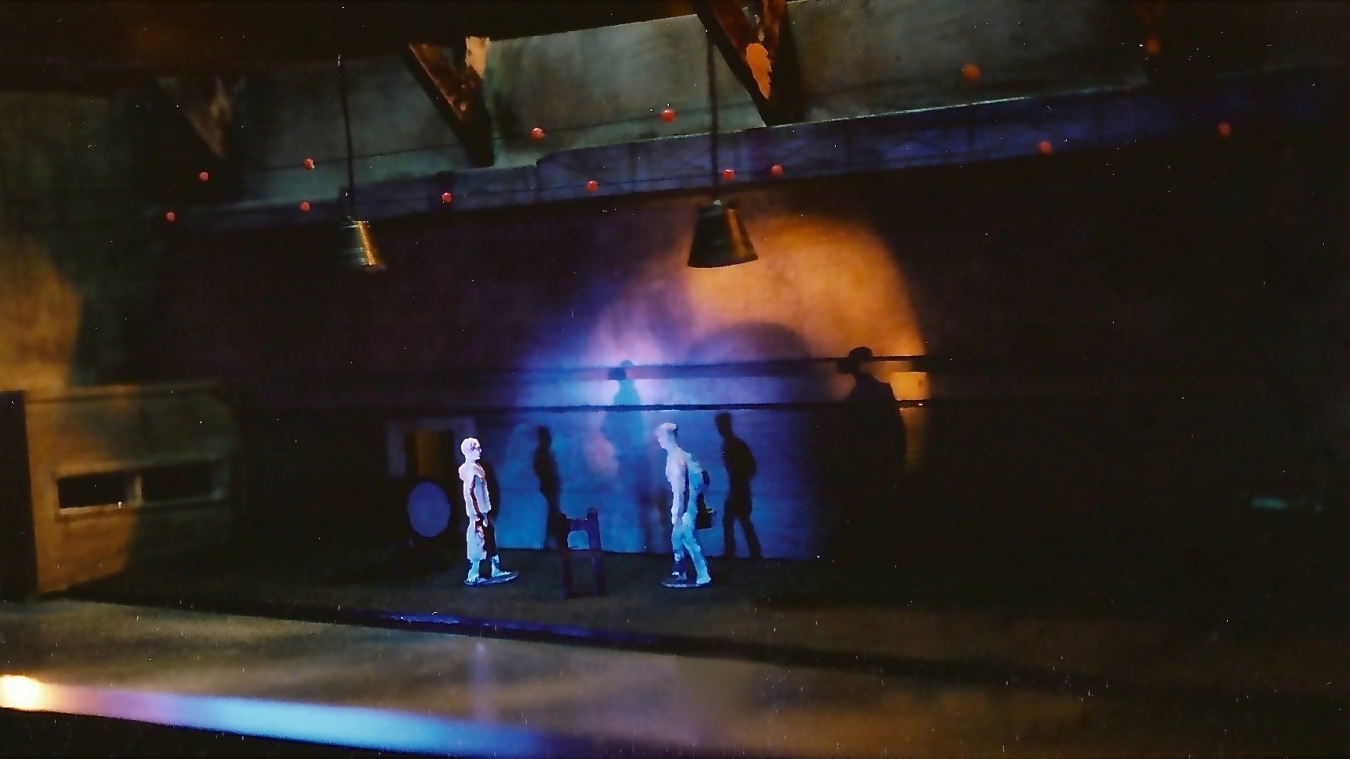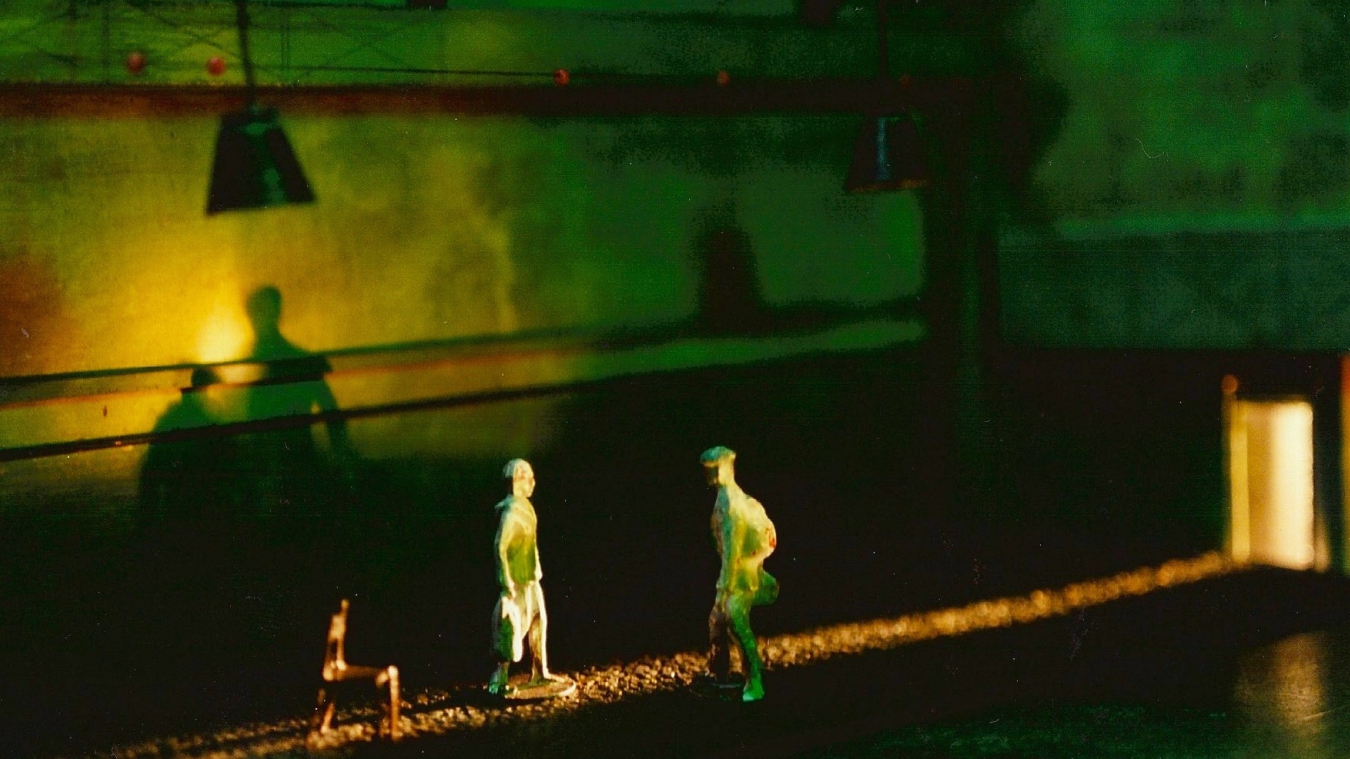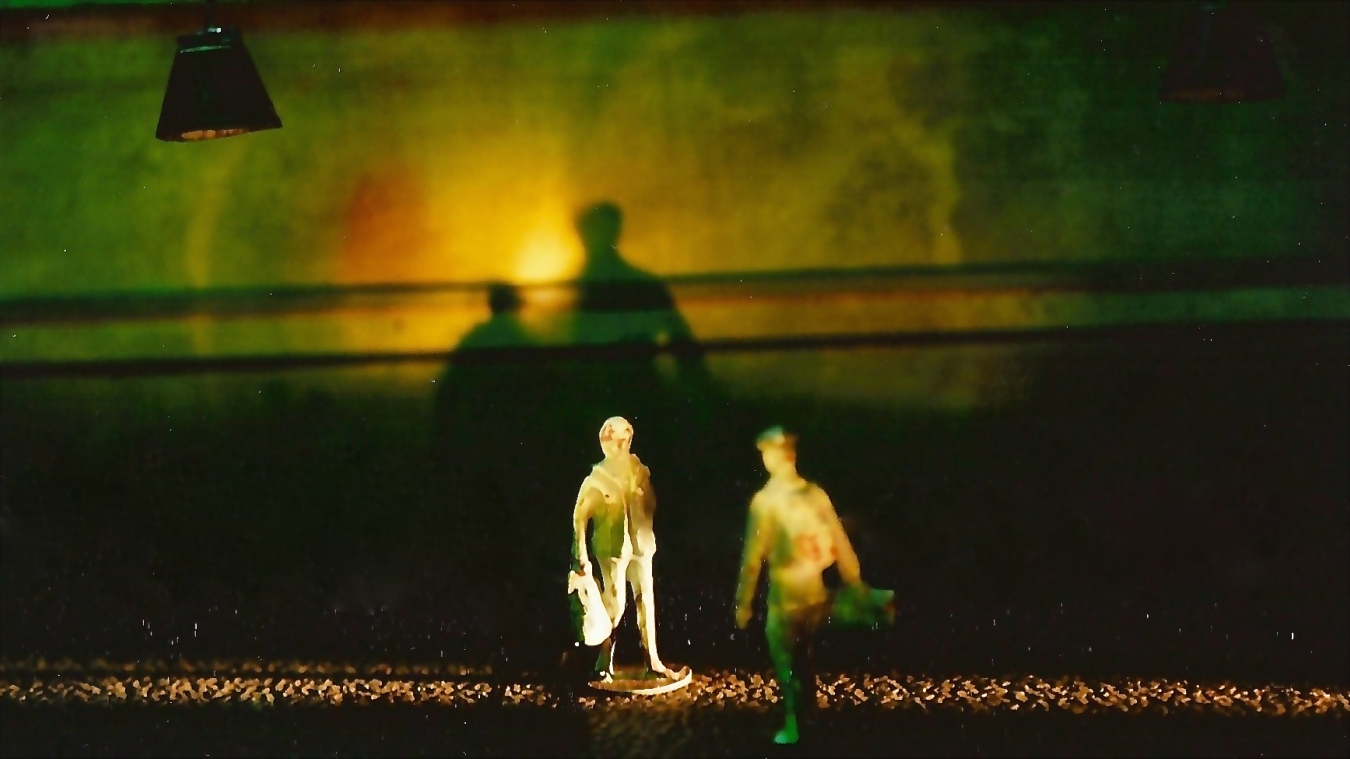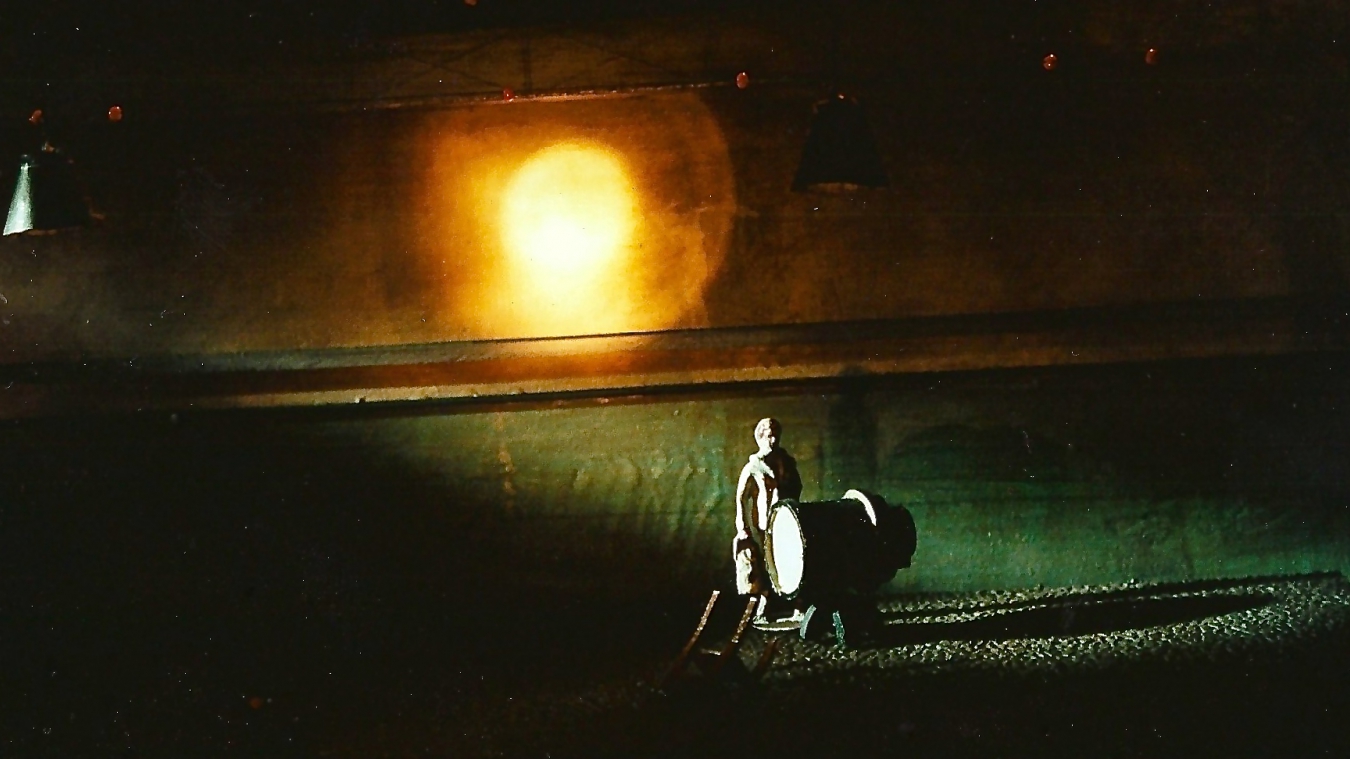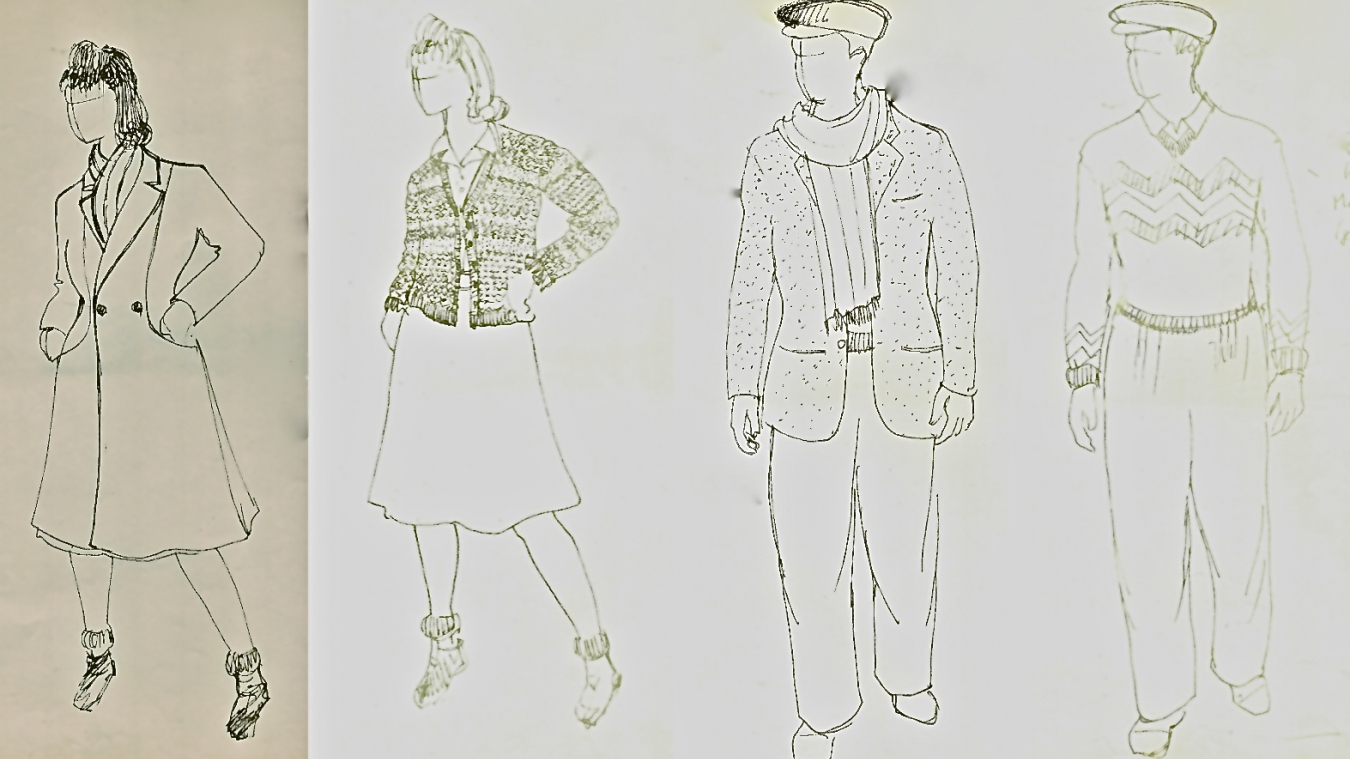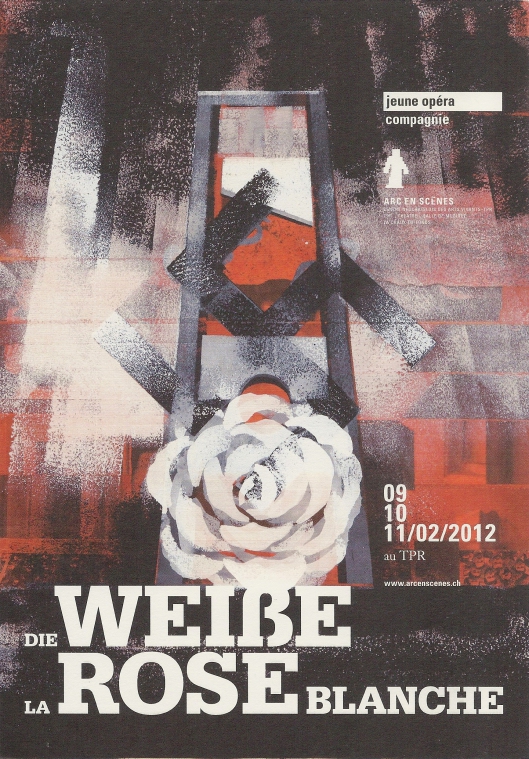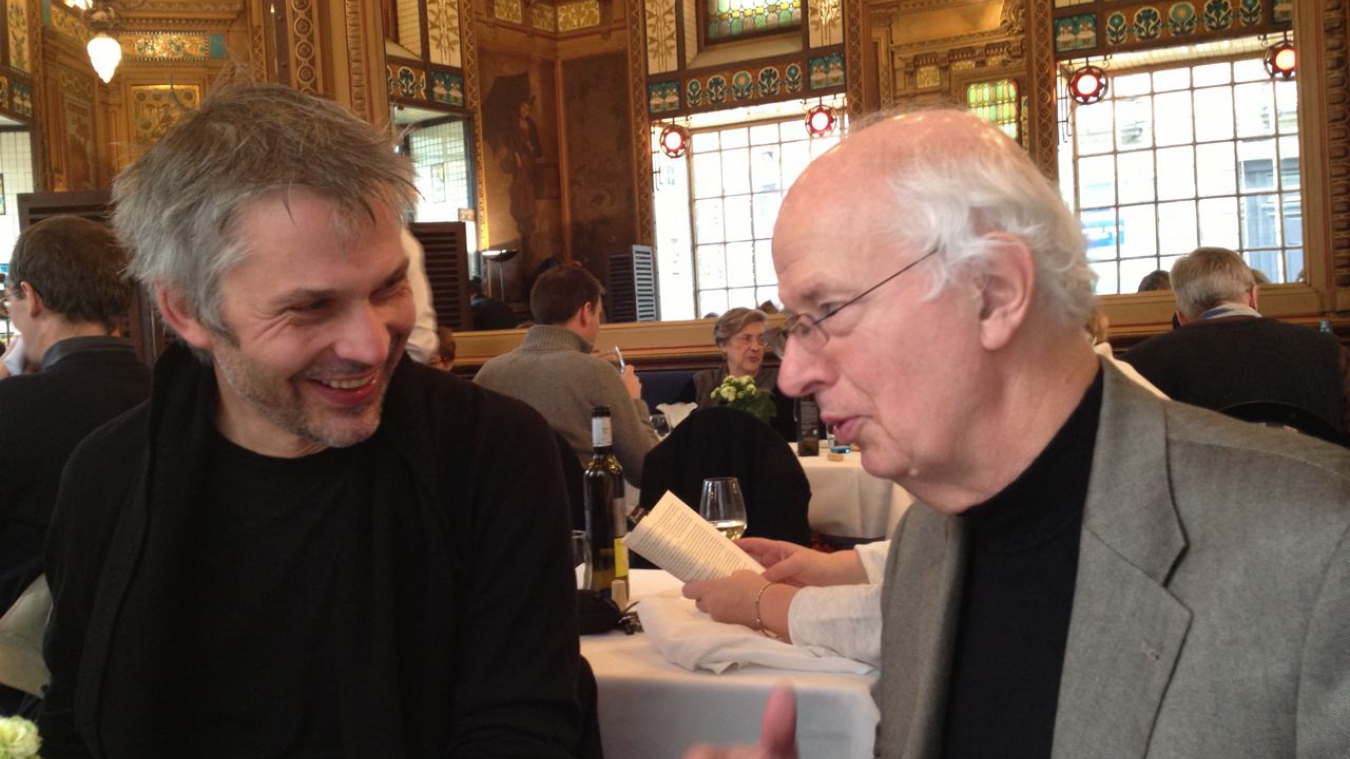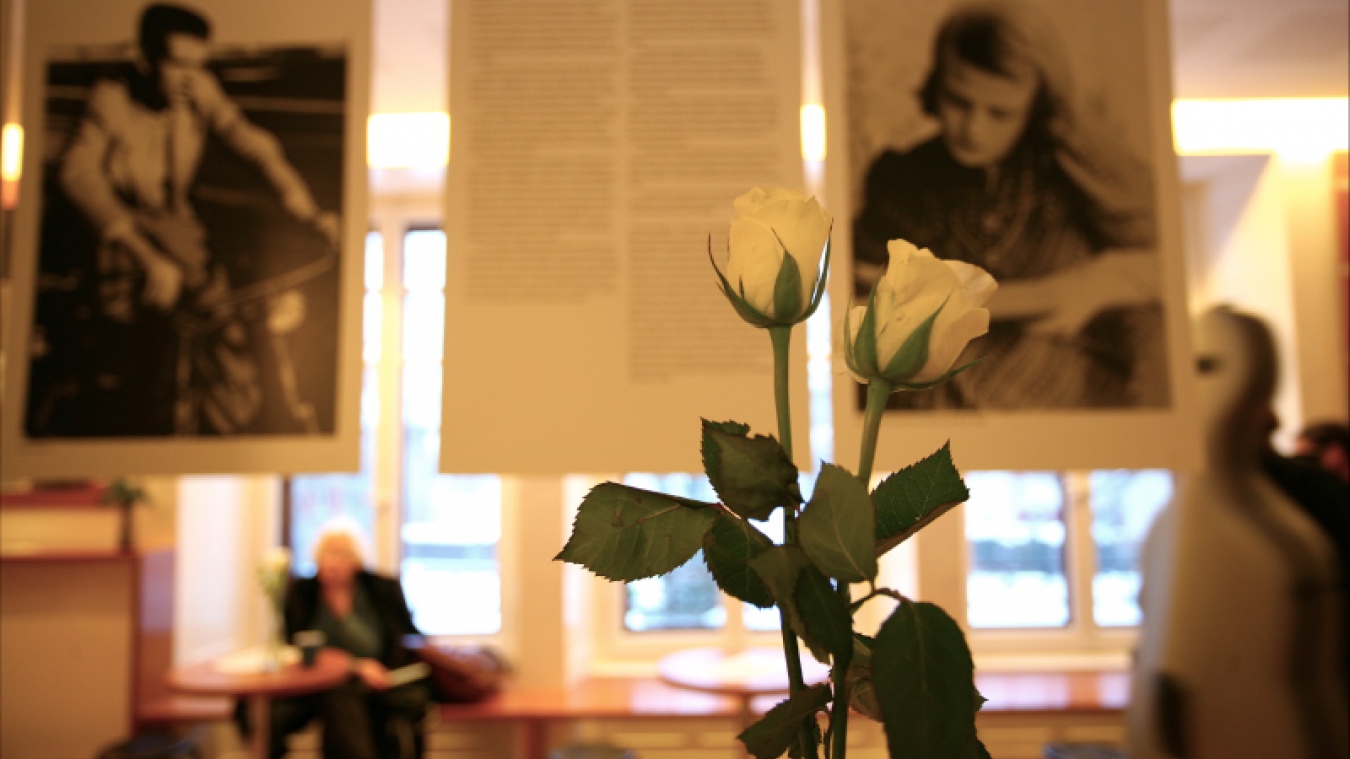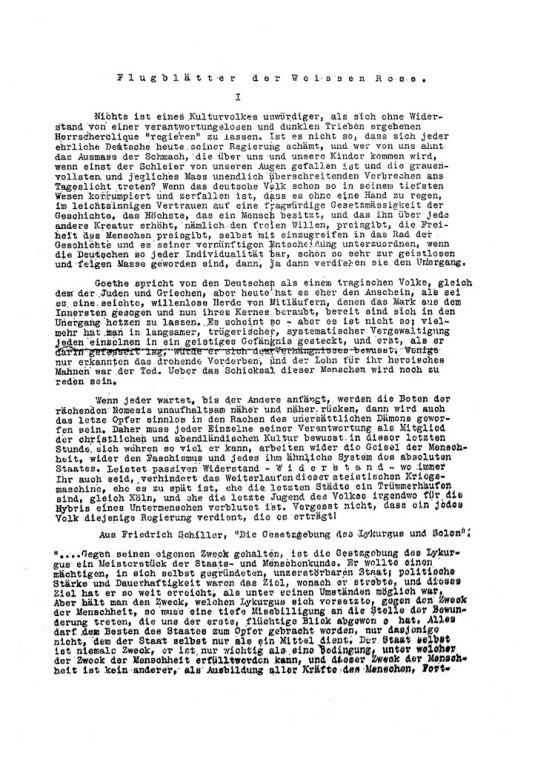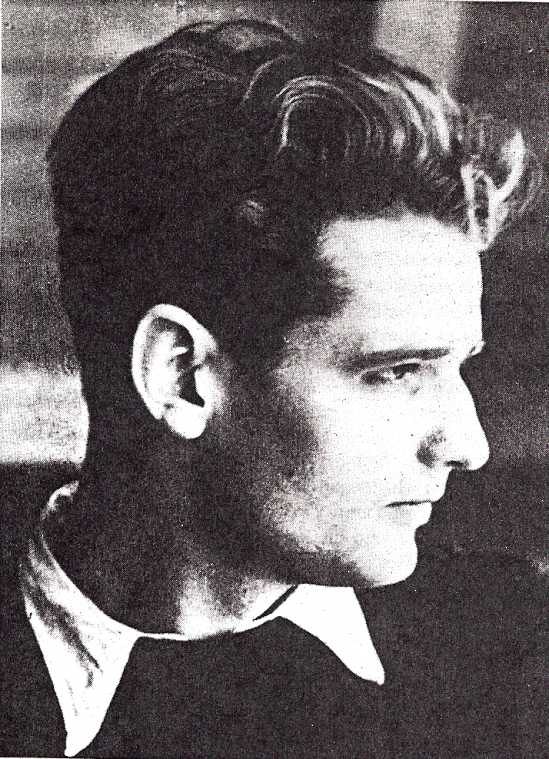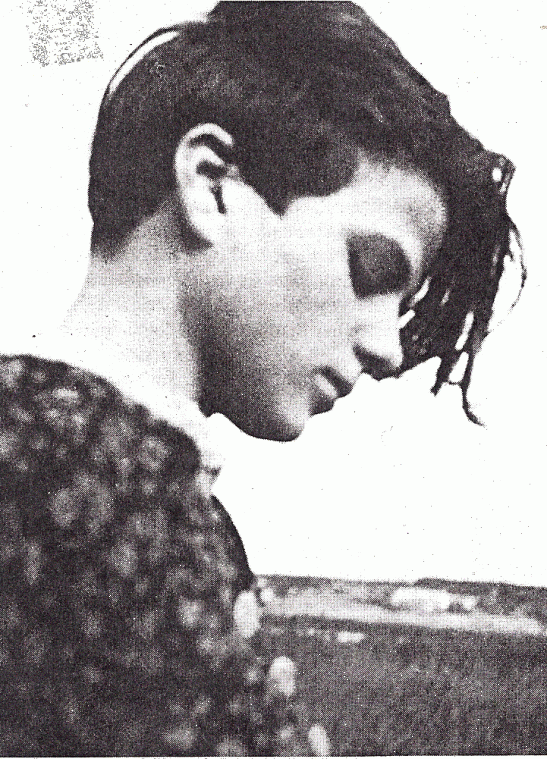die weisse Rose
the white rose
an opera by Udo Zimmermann
The audience is impressed by both singers’ unfailing emotional involvement. It is a short dense production that does not leave us unscathed.
Magazine Opéra
Overwhelming and rugged,
the white rose affects us
very strongly, very deeply.
Stephan Grögler’s stage direction sanctions the qualities
of a seasoned master, never tempted by the easy way out
Le Progrès
A chamber opera in sixteen scenes by Udo Zimmermann
For fifteen musicians and two singers
Libretto by W. Willaschek
In German with surtitles
1.30 hrs with no interval
Along with the production: an exhibition by the Munich Weisse Rose Foundation,
films, conferences, etc.
The last days of the life of Hans and Sophie Scholl, the emblematic figures of the German resistance against the nazi regime. As an identification model, The White Rose goes far beyond a heartrending
piece; it is a manifesto against oblivion.
For months within the students’ organization The White Rose, brother and sister fought, their only weapons a few thousand leaflets and graffiti on the walls of Munich. The story evokes their last moments before their execution. It displays their acute degree of awareness of the value of free citizenship and the flow of their emotions, their thoughts, memories, moments of fright, prayers,etc. The piece fluctuates between their emotional state sometimes verging on hallucination and the reassessment of their commitment.
The scenic arrangement devised by Stephan Grögler emphasizes the proximity between spectators and performers. The scenery is stylized to a fault; a long, cold, metallic looking wall bounds the stage, the earthy ground with merely a pair of chairs and two lamps on it. Above the wall, a platform accommodates the orchestra, so that the musicians are seen from below, facing the public. Both protagonists are compressed between the musical pressure and the spectators’ gaze.
The production, although conceived for a frontal display, can be adapted to locations as different as an derelict factory, a museum or a theatre and the orchestra to a traditional pit.
Production Jeune Opera Compagnie (Switzerland)
Elizabeth Bailey, soprano, Armando Noguera, barytone, Nicolas Farine, conductor (JOC), Stephan Grögler, scenery and stage direction, Véronique Seymat, costumes, Cyril Mulon, lightings
“L’homme supérieur est clarté, et non éclat superficiel”
Cette citation de Lao-tseu imprimée sur des tracts hostiles au régime nazi est de celles qui ont coûté la vie à deux étudiants allemands, Sophie Scholl et son frère Hans. Avec certains de leurs professeurs de la Faculté de Munich, ils ont fondé La Rose blanche, un réseau clandestin de résistance à Hitler. Sur des tracts ou inscrits sur des murs à la peinture, leurs slogans convoquent, avec Lao-tseu, Schiller, Goethe, Novalis ou la Bible. Le 18 février 1943, un concierge du campus les aperçoit alors qu’ils lancent des tracts de la coursive du deuxième étage donnant sur le hall du bâtiment principal. Dénoncés, ils sont immédiatement arrêtés.
Udo Zimmermann compose une musique qui, sans illustrer l’anecdote, plonge au coeur de l’humanisme des jeunes militants en épousant ce moment suspendu où, enfermés dans une cave après un procès expéditif, ils attendent le bourreau qui les décapitera à la hache. Le livret est basé sur la correspondance et les écrits des deux résistants. Pas de furie ni de révolte mais, paradoxalement, ce sont les frémissements et le calme dans lequel les deux martyrs sont repliés qui nous touchent. Stephan Grögler, le metteur en scène, invente un espace où “ le mur a priori sinistre et le sol peuvent changer sous les effets des lumières pour évoquer d’autres espaces et recréer le souvenir de la rêverie ” pour nous inviter à appréhender “ l’universalité d’un acte de résistance ”.
Ce spectacle a été crée à l’origine pour l’Opéra National de Lyon .
Il a fait l’objet d’une captation et a été diffusé par Arte live Web.
DATES
Chaux de fonds, L'heure Bleue, 9 10 11 février 2012
Opéra-Théâtre Graslin Nantes, 29, 30 janvier, Théâtre d'Angers 6, 8, 10 février 2013
COPRODUCTION
En co-production avec La Jeune Opera Compagnie (CH)
 Presentation
Presentation Video
Video